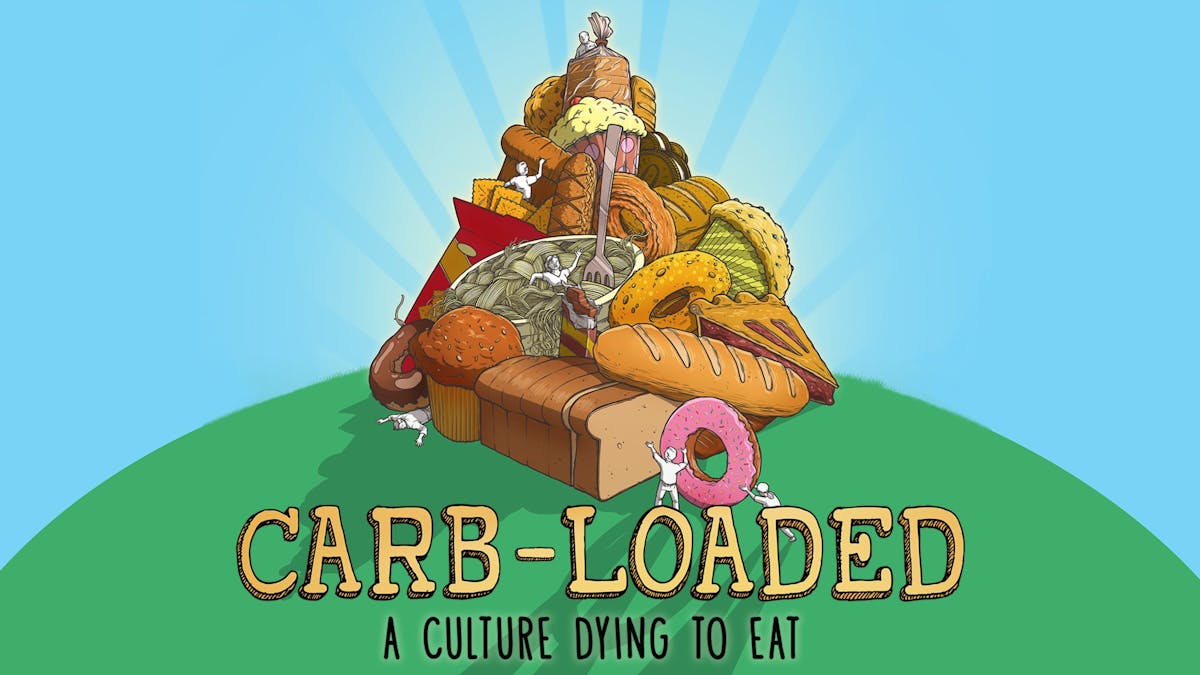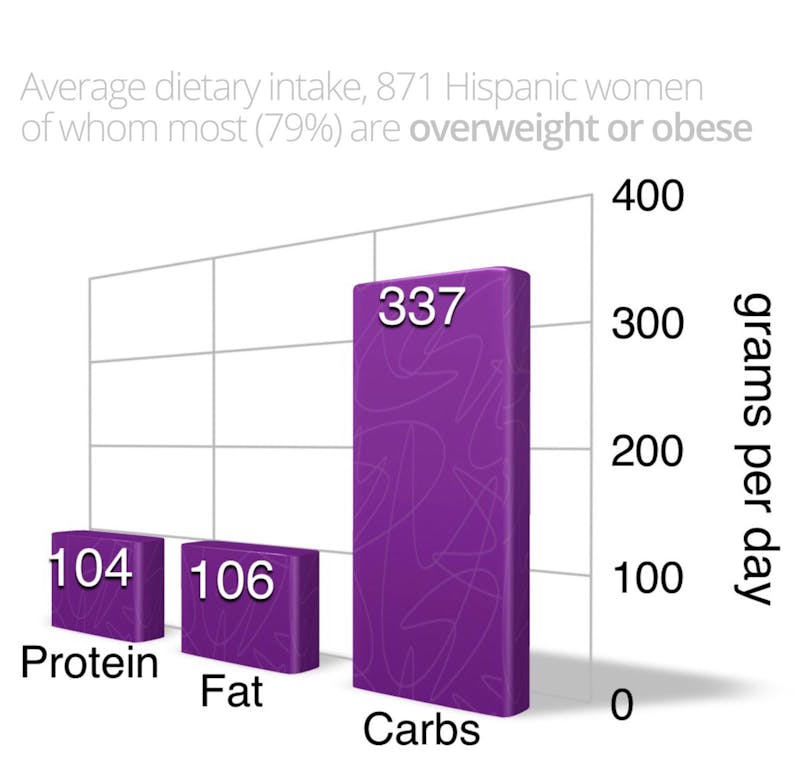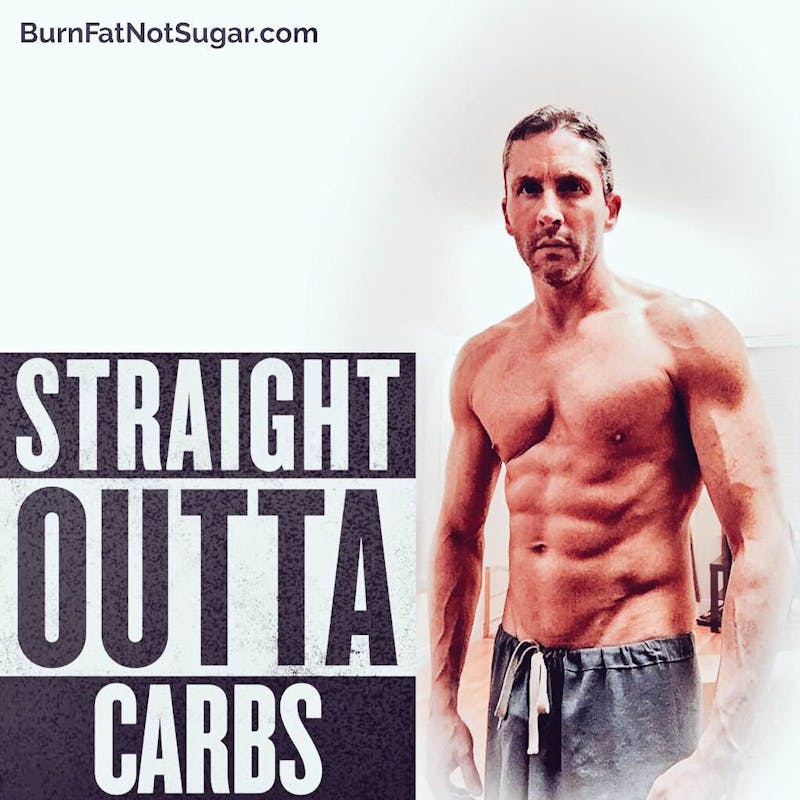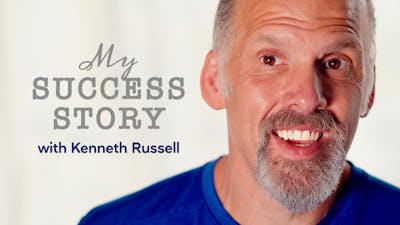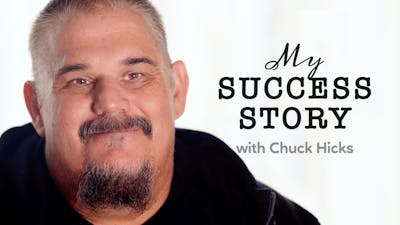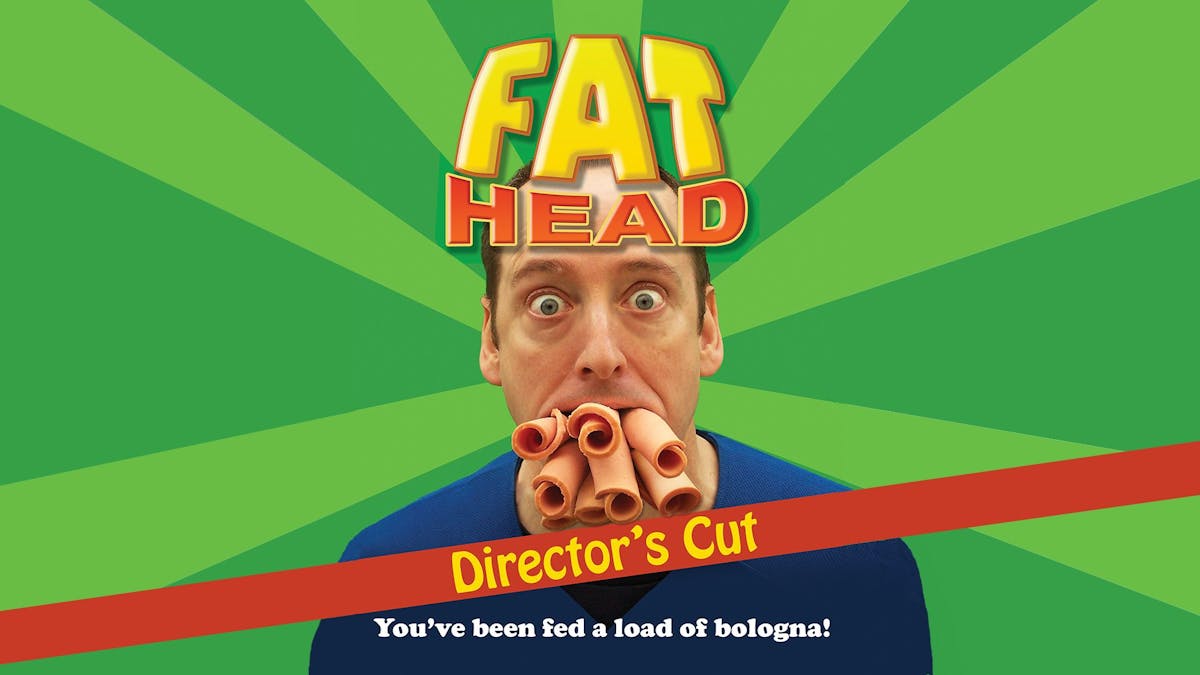What do overweight and obese people eat?
Here’s what a group of mostly overweight or obese people are eating (via Dr. Ted Naiman).
Does it suggest anything to you?
By the way, here’s the average daily intake in the US:
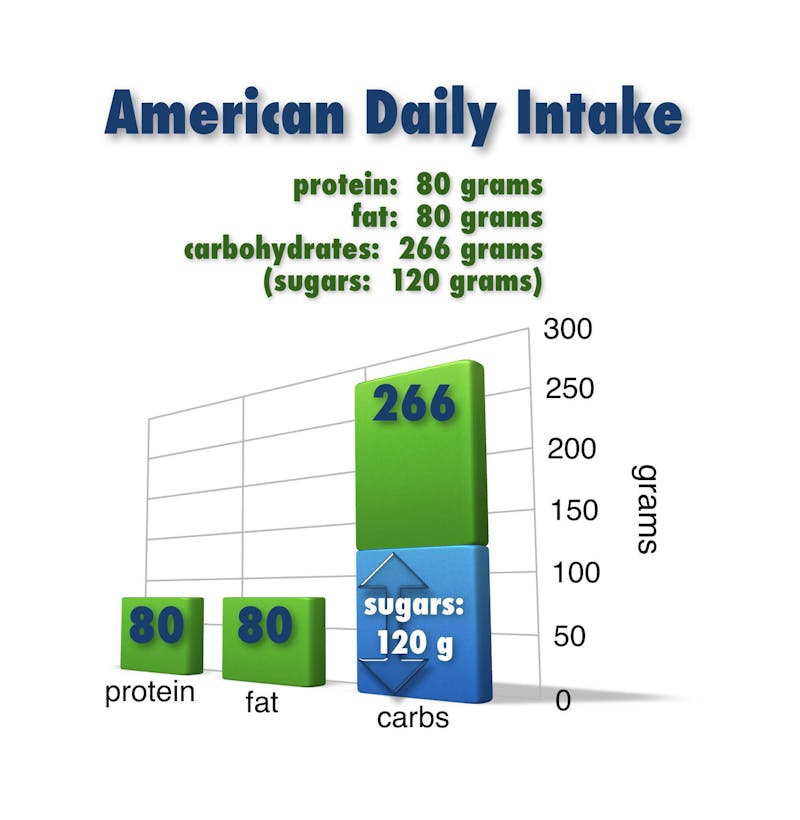


For some reason there’s an obesity epidemic going on. What could possibly be the problem?
Dr. Ted Naiman
Just for contrast, here’s what Dr. Naiman eats in a day.
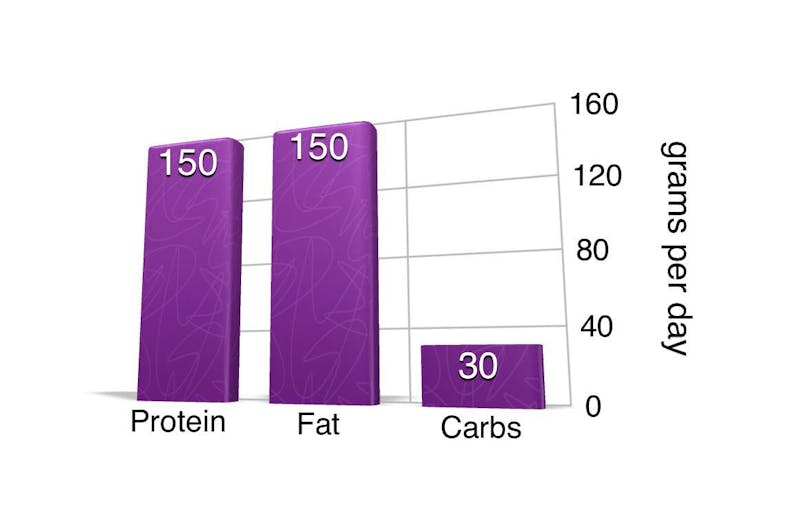


So what happens when you eat all that fat? Here’s what:
More
Top videos on weight loss
- MEMBERS ONLY
![How to motivate your patients]()

Related movies
MEMBERS ONLY
